If one thing is true, it’s that the world needs more outdoor educators.
Let me tell you why.
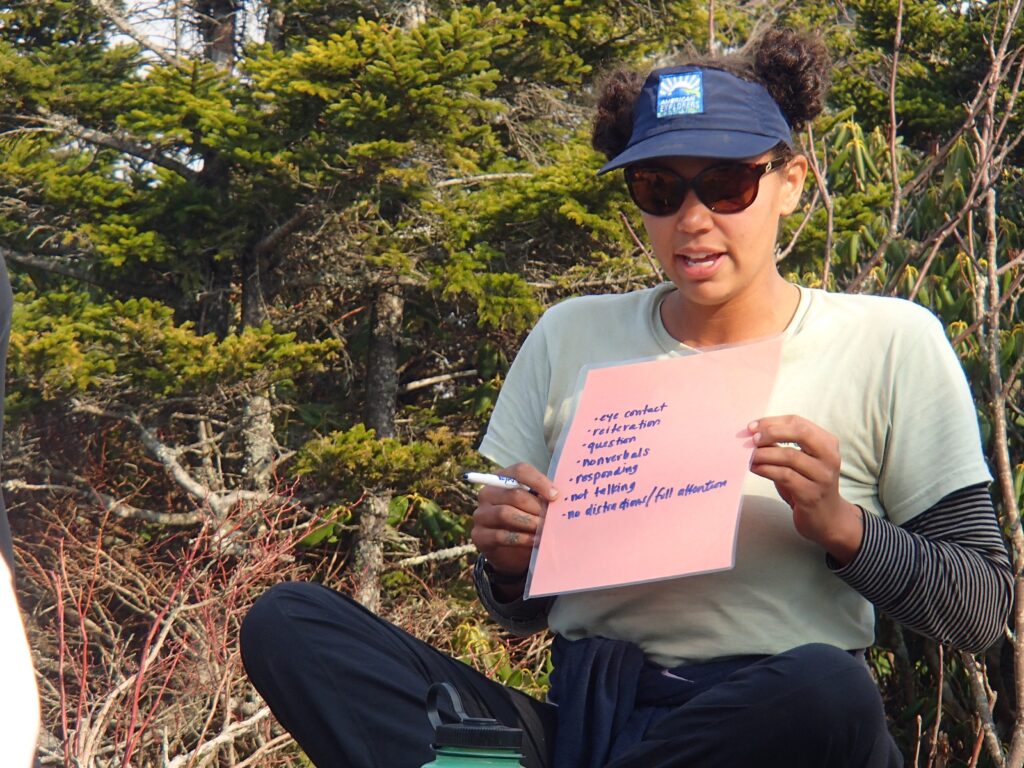
Outdoor educators wear many hats: they’re nurses, artists, outdoor professionals, counselors—and the list goes on.
Outdoor Educators Wear Many Hats
When we assess physical health in the field and tend to cuts and scrapes and sunburn, we’re nurses.
When we mentor students and empower them to grasp new knowledge, we’re teachers.
When we teach rock climbing safety systems, we’re outdoor professionals.
When we facilitate moments where students can reflect, ask questions and talk through what’s been on their minds, we’re counselors.
When we’re encouraging students to experiment and get creative, we’re artists.
We create experiences for our students that allow them the freedom to discover their full potential, and where and how they can best utilize it when they go home. The where doesn’t matter, it’s the ‘what’ we’re doing that does.
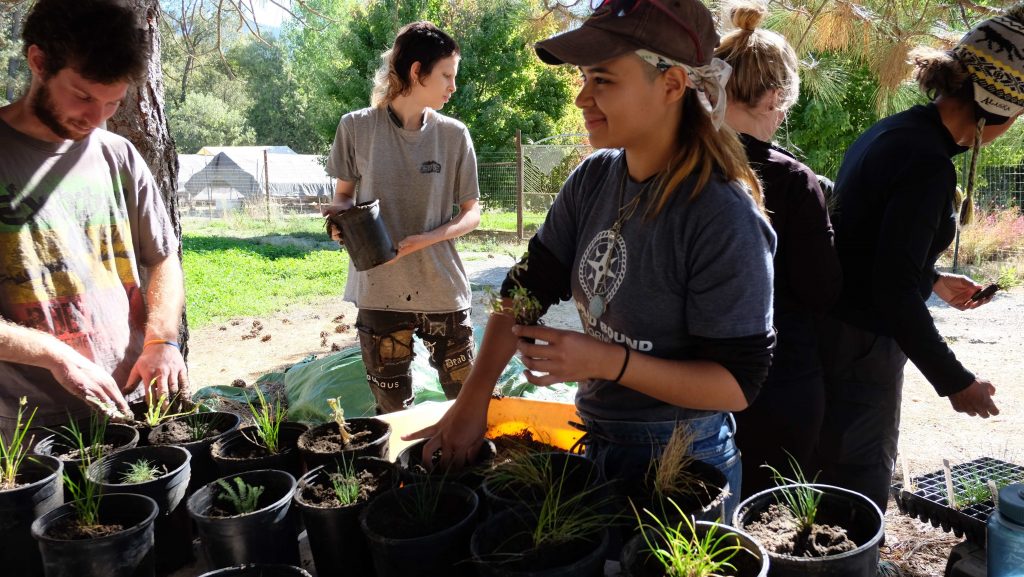
Outdoor educators create experiences for their students that allow them the freedom to discover their full potential.
We aren’t the magic behind these experiences, our students are. It takes an empathetic ear, some patience and an understanding that experience, reflection and failure are the best way to learn. To embrace the unknown and feel confident in saying, “Let’s just try.” Because what students try and fail at, and try and fail at again, will only make them better at trying and succeeding back home.
We learn how to teach a diverse group of people, but before that, we learn how to care for them. We get to know one another, and without the pressure of time or deadlines or the cycle of coming and going, we have no place to hide. And why should we want to? We get to know each other, ourselves and students for the complexity and beauty that we all are. You can’t rush that, and you shouldn’t want to. In the environments we’re in, that’s the best and most authentic way to be discovered.
Outdoor Educators Are Prepared to Take on Anything
A leader is best when people barely know he exists, when his work is done, his aim fulfilled, they will say: we did it ourselves. -Lao Tzu
It’s tough to articulate the vastness of this job on a resume—the challenges we face and overcome. The students we inspire. The grit, work ethic, confidence, self-reliance and problem-solving skills that strengthen because of this work.
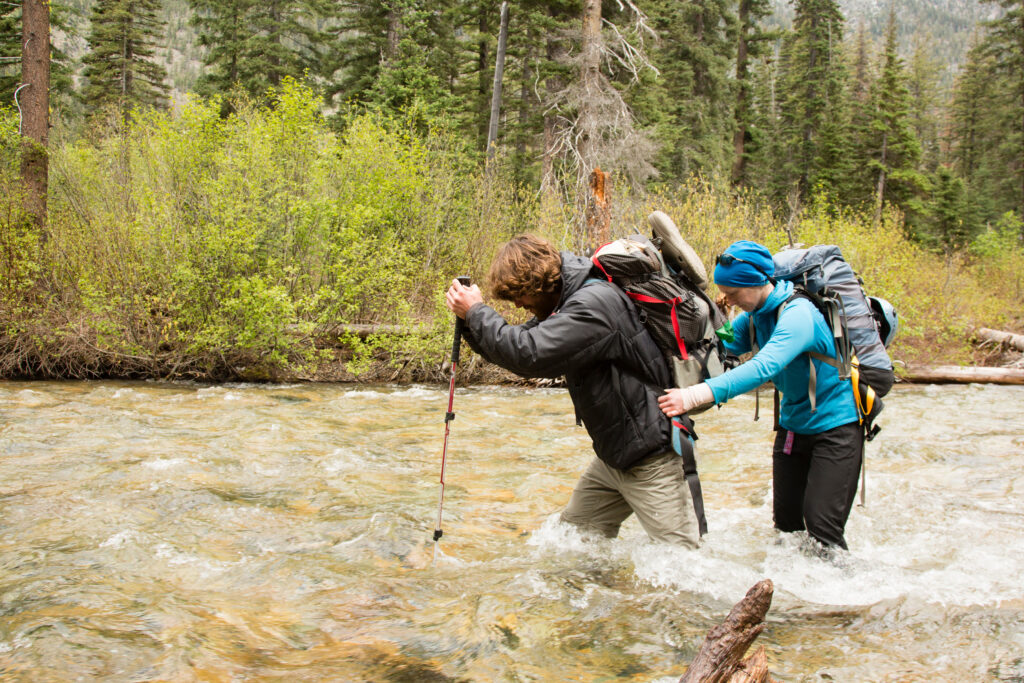
Outdoor educators create space that people feel comfortable to fall apart in, empowering them to see the best version of themselves. Photo by David Moskowitz.
Outdoor educators create space that people feel comfortable to fall apart in. First, we build trust. Then, we ask the hard questions, confronting the moments (interactions, feelings) that you can’t put into words.
It’s knowing you have to summit the mountain by the evening, but you stop the group and ask them, “What’s going on?”
It’s encouraging them to reflect, talk through issues, be solution-oriented, empathetic and intentional.
It’s not telling them what you think is right or wrong, rather, it’s helping them identify it themselves.
It’s not trekking so fast that you forget to enjoy it. It’s asking them what they accomplished, what it means to have hiked this far, in this inclement weather.
It’s learning to accept and celebrate that accomplishing something isn’t just summiting a mountain.
The skills and experiences that students share and learn are monumental, eye-opening and empowering. They take them wherever they go. And that wealth is only a sliver of what outdoor educators gain. While no course is the same, we always learn something new, based on what we’ve experienced before. We adapt, accept, reflect, move on. We learn. We just try. We embrace the unknown.
I’m comfortable with what’s uncomfortable: confrontation, miscommunication, stress. I’ve had ample experience to navigate those circumstances, like mediating student conflicts and getting real with my co-Instructors/supervisors. I’ve witnessed numerous confrontations, as they are a natural part of any relationship. What keeps me level-headed in moments of disharmony is the fact that most of the time, disagreeing parties want the same things, they just go about it differently. And if you give it time, you can come together to talk through it, and move forward with hopeful common goals. Assume best-intent. That was one thing I learned in my first few days as a field Instructor. And that’s applicable to most interactions I have now.
The World Needs More…
The world needs more outdoor educators because the world needs more people who lead with their heart. Who don’t shy away from uncomfortable conversations or circumstances. Who takes the path less traveled, which usually means the harder one. To come out feeling accomplished and certain they can conquer any feat at home. If I can do this, I can do anything.
Outdoor educators know how to ask for help while being self-reliant. We don’t ask for praise because we feel it internally. We enjoy adventure, empowering others and questioning the status quo. We chant the mantra, “work smarter, not harder.” Smarter is working together and learning from your past. We’re always looking to improve and share knowledge, and we always have time to listen, laugh and appreciate what’s in front of us.
The skills we obtain as an outdoor educator are for life. The job is about the transference of skills and experience. No matter where we go or what we do, we bring with us what seasons outside instill within.
Any industry—medicine, social services, technology, journalism, service—would benefit from an outdoor educator in their field. There’s no other responsibility as grand as taking care of and keeping your crew safe. We’re trained and trusted to do that—with a group of strangers—for days to months on end. That prepares you to take on anything.
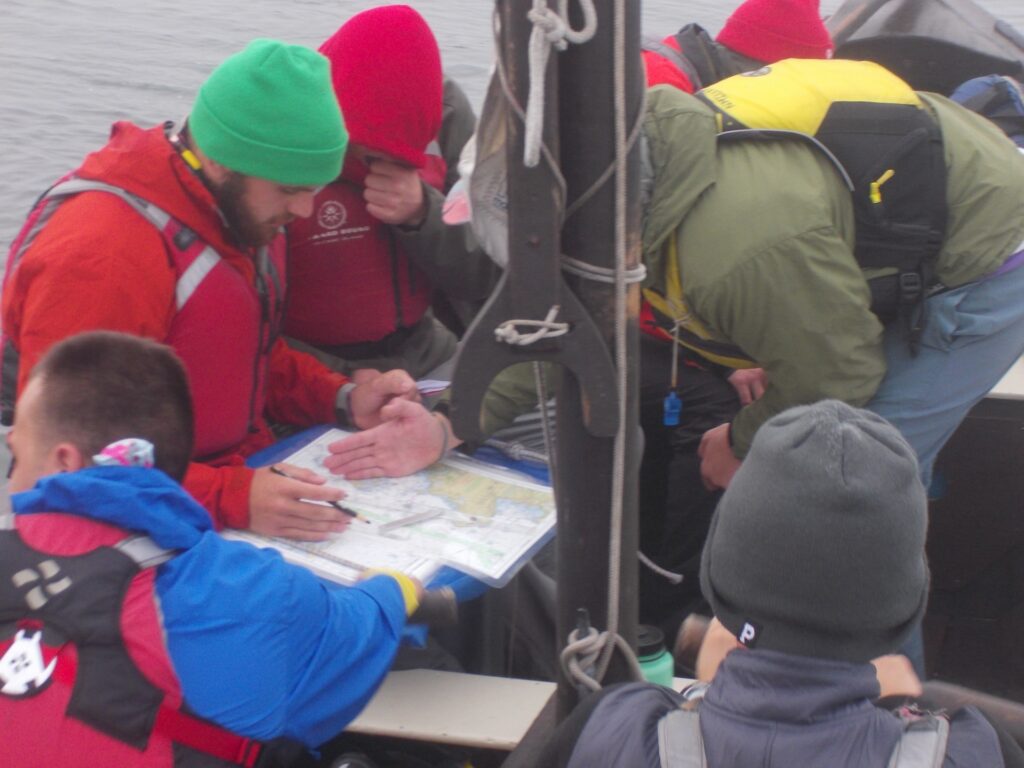
There’s no other responsibility as grand as taking care of and keeping your crew safe.
Humility is Part of the Job
When we take students out into the wilderness, we’re welcoming them into an environment that’s perceivably scary. We’re trained and experienced. We know how to keep them safe, but explaining that also requires the ability to check the ego at the door. We don’t do this job to be the best at it or brag either; we love how it makes us feel—confident, strong, brave, resourceful, dependable. And our hope is that our students can feel something intuitive, too. But we’re living in an age where who “likes” us is important to our self-worth. It’s backwards, though. Because when you’re in a state of vulnerability the last person you want teaching you about something new is someone who doesn’t relate to you, or calls it “easy.” And maybe it is for us, because this is our passion, but we do not compare anyone’s level or interest or skill with anyone else’s.
And it’s true, a lot of previous Outward Bounders have gone on to do a variety of things. Which makes this job a monumental milestone in one’s career because it prepares you for life, wherever you choose to take it. The skills can take you to uncharted territories, and you’ll go into them braver, stronger and a better leader.
Outdoor educators: I’ve never met a more compassionate, community-oriented, resilient and intentional group of leaders. Who voluntarily eat pieces of humble pie by the handful, share it around a campfire—listen, laugh, forgive and see the best in those they meet.
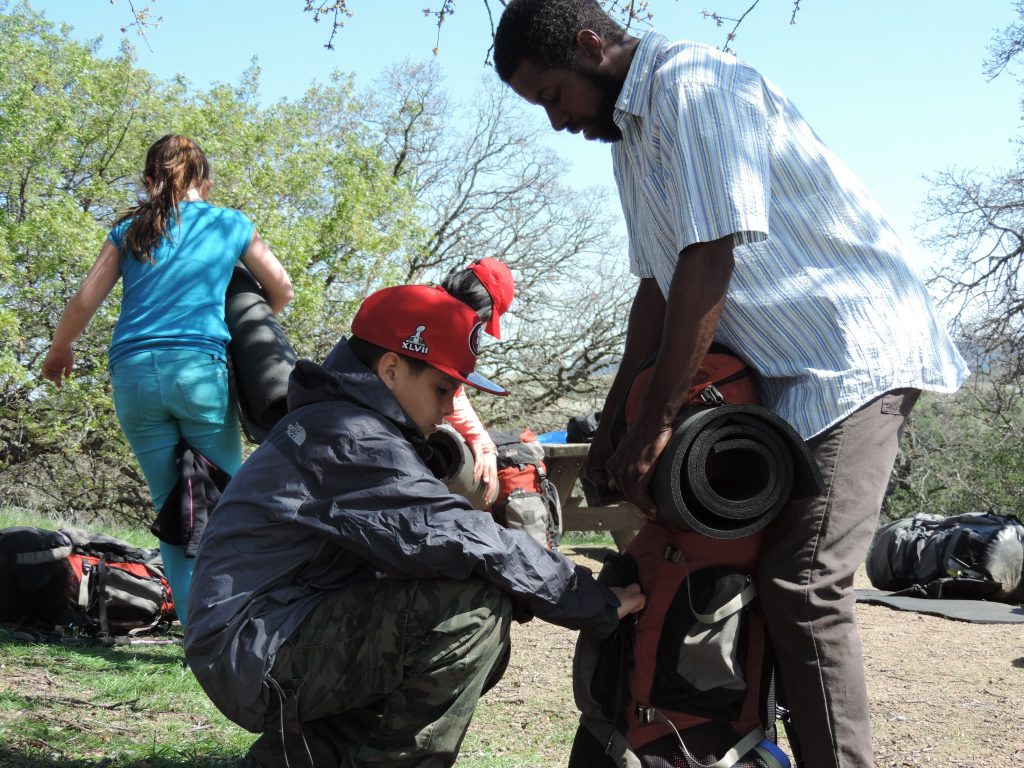
Being an outdoor educator prepares you for life, wherever you choose to take it.
Because of the many hats outdoor educators wear, they’re bound to pick one or two that fit them best. They too go Outward Bound, and they leave behind a job full of adventure and growth to only find another one, honing in on their craft. They go on to become doctors, nurses, counselors, teachers, lawyers, journalists or artists. The diversity of fields they may pursue is endless because being an outdoor educator is trying your hand at it all.
The job has a long list of responsibilities, but an even longer list of accomplishments and skills that come out of the time and hard work put in. It’s inevitable there’ll be a few aspects of the job that are favored more than others based on who you talk to. That’s why we work in teams, and that’s why we go on to do so many different things. Above all though, no matter what hat we wear, we’re always leading with the same values.
About the Author
Blaine Weiss is an outdoor Instructor who works primarily with the Intercept program of the North Carolina Outward Bound School. With a background in film and writing, she seizes the opportunity to fuse her interests in the creative arts with her love of the outdoors.




